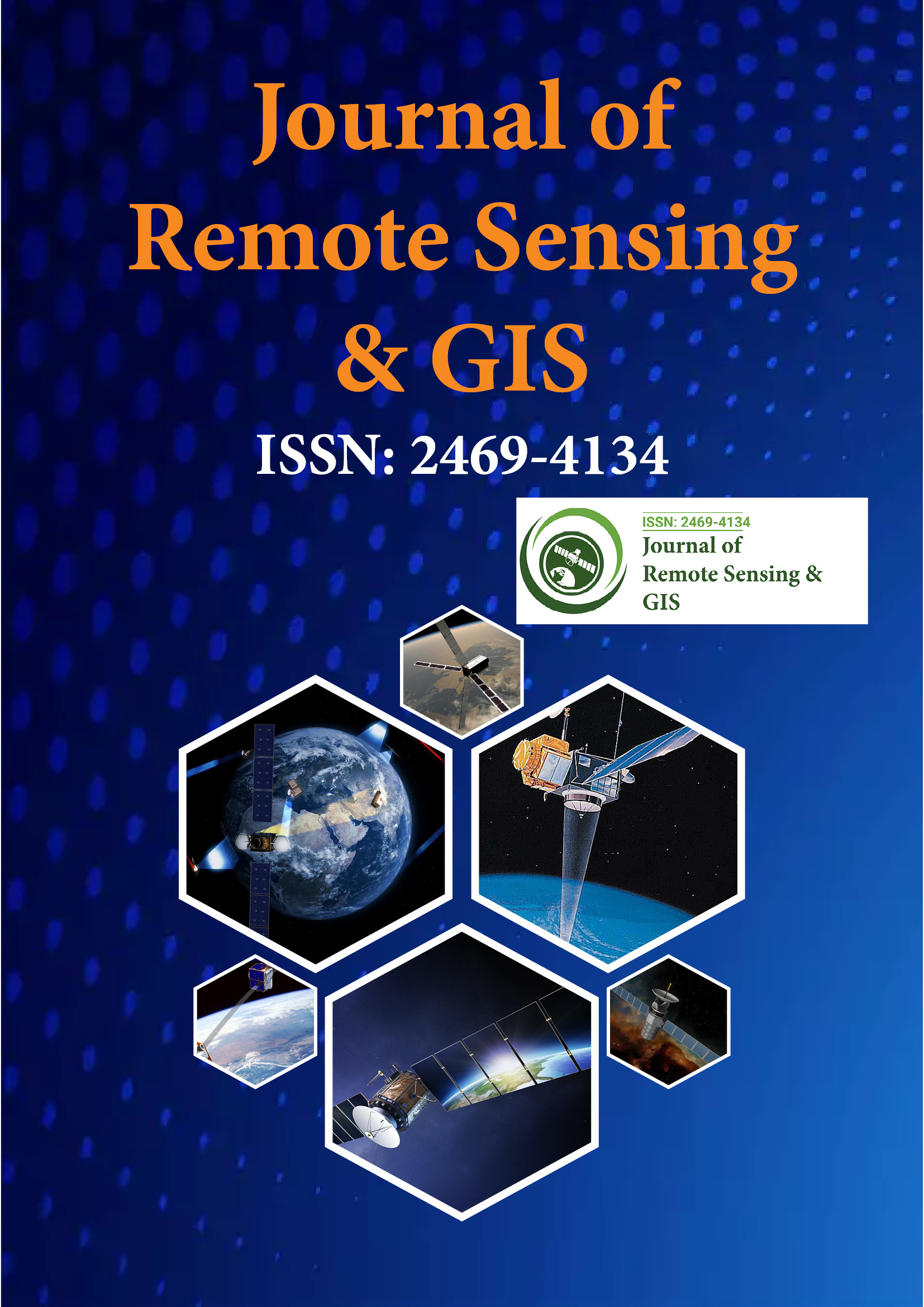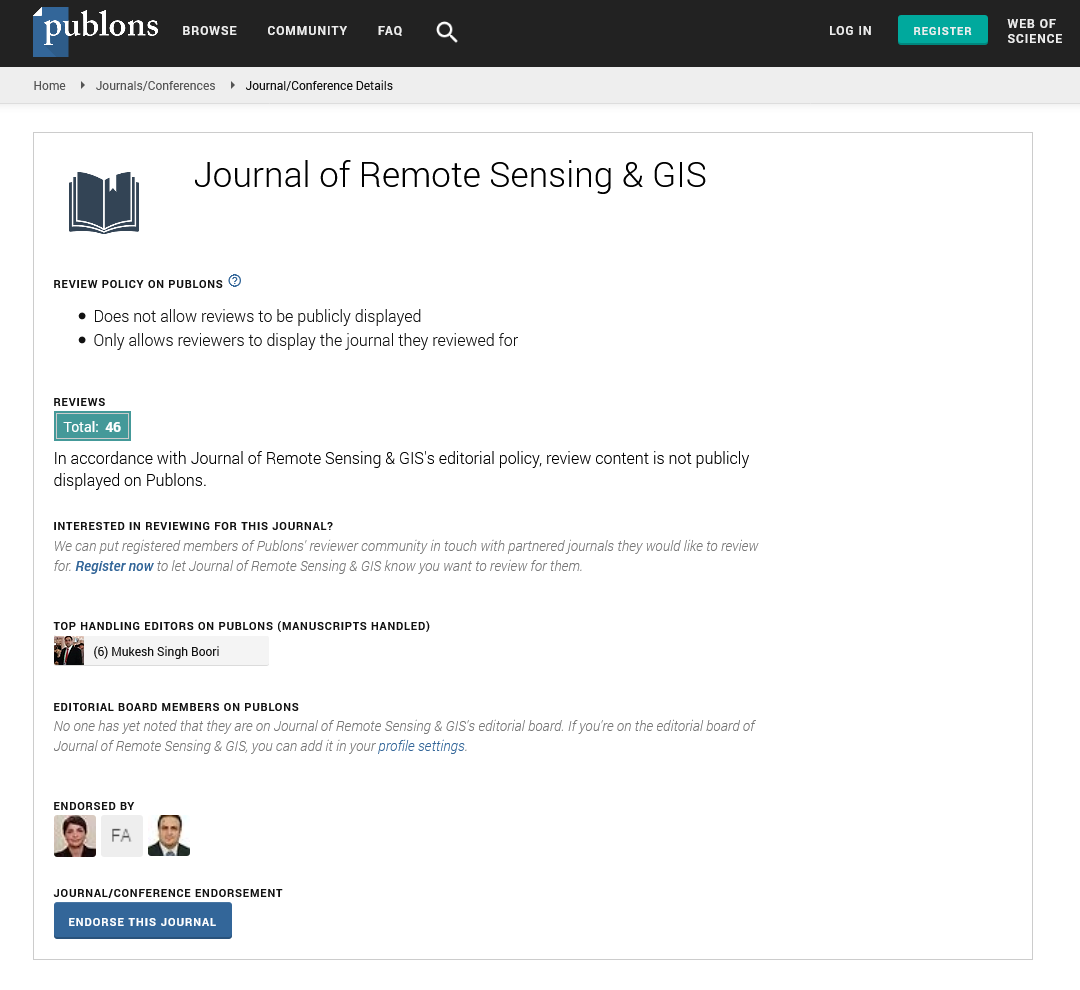Indexed In
- Open J Gate
- RefSeek
- Hamdard University
- EBSCO A-Z
- OCLC- WorldCat
- Publons
- International Scientific Indexing
- Euro Pub
- Google Scholar
Useful Links
Share This Page
Journal Flyer

Open Access Journals
- Agri and Aquaculture
- Biochemistry
- Bioinformatics & Systems Biology
- Business & Management
- Chemistry
- Clinical Sciences
- Engineering
- Food & Nutrition
- General Science
- Genetics & Molecular Biology
- Immunology & Microbiology
- Medical Sciences
- Neuroscience & Psychology
- Nursing & Health Care
- Pharmaceutical Sciences
Assessment and improvement of landsat land surface temperature and its relationship with urban land cover at a semi-arid region (Tripoli the capital of Libya)
5th International Conference on GIS and Remote Sensing
September 16-17, 2019 | Rome, Italy
Akram Abdulla and Keven Tansey
Leicester University, UK
Scientific Tracks Abstracts: J Remote Sens GIS
Abstract:
Land surface temperature (LST) has long been a topic of interest among scholars. Although high spatial resolution remotely sensed data have facilitated the study of LST, the fact that lack of this type of data during the peak of the temperature is still a controversial issue. This study proposes a technique to covert Landsat LST data form the morning time to during the peak of the temperature by redistributing the mainδLST (LST increase value between mornings and a peak of the temperature) from SEVIRI based on absorptivity (LSA), emissivity (LSE) and transpiration effect estimated by ground measurements and then this converted image will be used for analysing the effect of the time of day on the relationship between LST and urban land cover. The result showed good accuracy with converting LST image, whereby standard error is equal to 1.2 Cº, R2 = 0.89 by compared the ground-based simultaneous measurements. A standard error of 1.6 Cº, R2 = 0.63 is achieved when compared with the SEVIRI data at the same resolution, the result explored that the relationship between LST and urban land covers is significantly affected by the time of day, and morning hours can not be sufficient to identify this relationship.
Biography :
Akram Abdulla has obtained his candidate of Science degree at the age of 27 years and doctor of Sciences at the age of 34 years in the Department of Geography of Leicester University (Leicester). During years of his scientific career, he worked successively in the academical department of Geography of Zawia University, Libya (since 2010 till 2013 as a lecturer in the Department of Geography of Zawia university). In 2015 he was sent to the UK to study PHD, since that time he is studying remote sensing in the urban environment at Leicester university.

